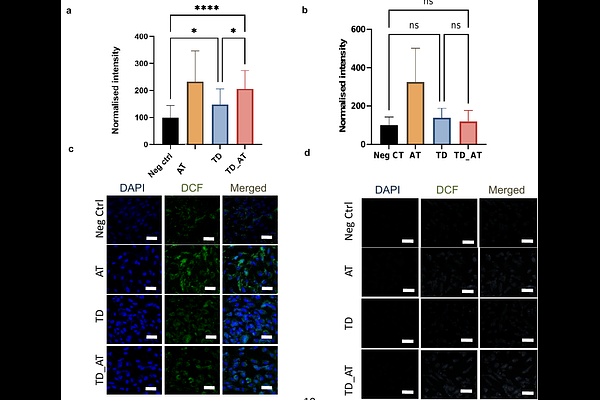Alpha-tocopherol conjugated DNA tetrahedron with enhanced cellular uptake and selective cytotoxicity for cancer therapeutics

Alpha-tocopherol conjugated DNA tetrahedron with enhanced cellular uptake and selective cytotoxicity for cancer therapeutics
Chithra, P.; Vaswani, P.; Bhatia, D. D.
AbstractOne of the most fatal diseases in the world, cancer, lacks proper therapies that are toxic to cancer cells and specifically kill them. A newly emerging field, DNA nanotechnology facilitates the design of programmable, biocompatible DNA-based nanostructures, with applications spanning drug delivery, biosensing, and a number of applications in biomedical and therapeutics. However, the negatively charged outer leaflet of the plasma membrane poses challenges for the uptake of negatively charged DNA nanostructures. Strategies such as functionalizing DNA nanostructures with cationic lipids have been attempted, but these approaches have yielded conflicting results and certain limitations including stability and ambiguity of lipid functionalisation. Additionally, drug delivery using DNA tetrahedron (TD) and other conventional therapies has shown off-target effects due to the non-specificity of the drug. To address these challenges, this study utilizes a hydrophobic molecule, alpha-tocopherol succinate (AT), known for its selective cytotoxicity towards malignant cells over normal cells at appropriate concentrations. Covalently conjugating AT with TD preserved its selective toxicity property and enhance the cellular internalization of DNA tetrahedron in specific cell lines. ROS generation was increased and led to apoptosis in malignant cell lines specifically. This suggests the development of a novel system with specific cytotoxicity towards cancer cells with increased uptake.